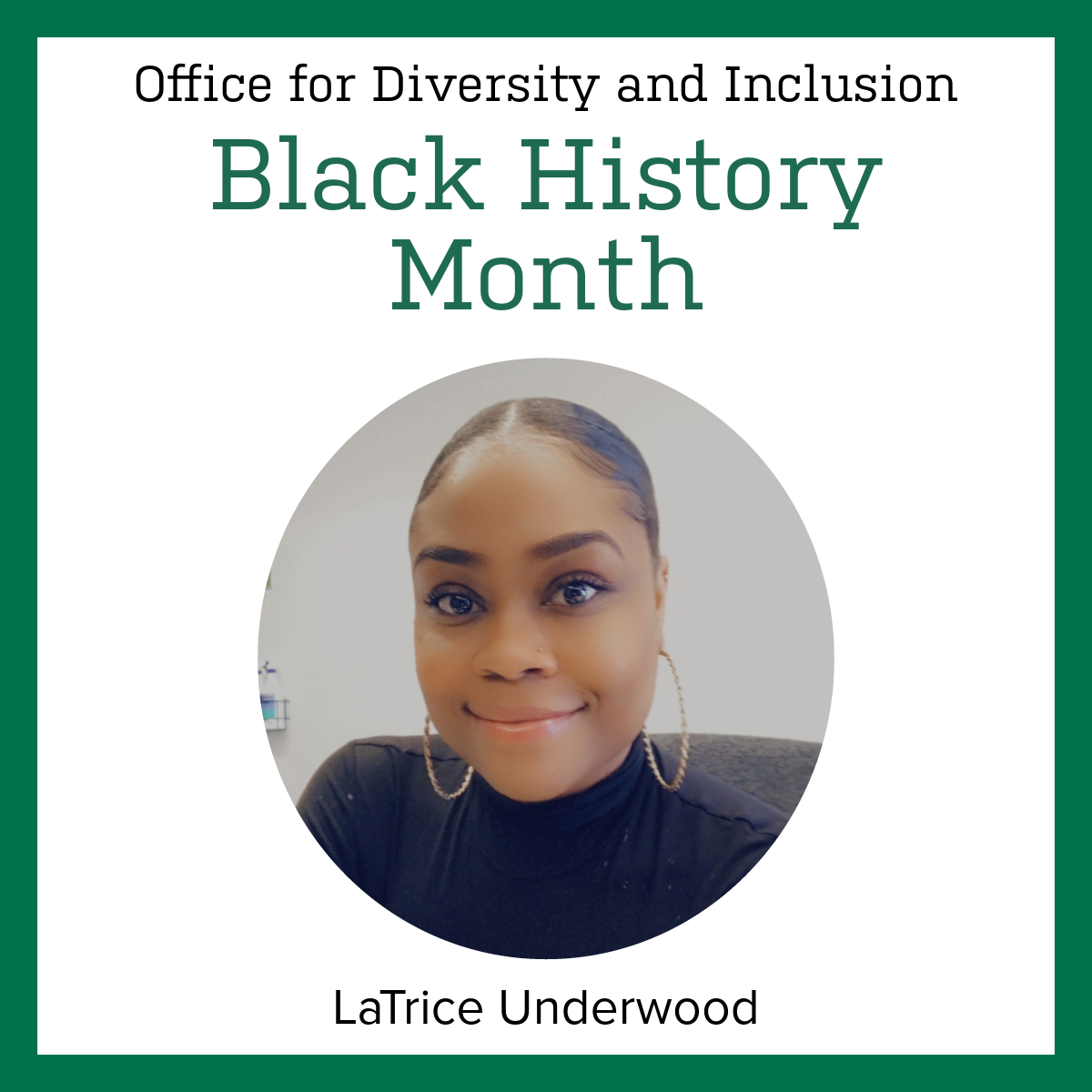 In the Office for Diversity and Inclusion’s Black History Month series, we sat down with a faculty member, a few staff, and a student who discussed their work and why making a difference around UAB is important to them.
In the Office for Diversity and Inclusion’s Black History Month series, we sat down with a faculty member, a few staff, and a student who discussed their work and why making a difference around UAB is important to them.
The four-part series describes their memories, sentiments, and favorite Black/African American art during February.
For Part 3, we talked with LaTrice Underwood, program coordinator II in the Department of Dermatology and Staff Diversity Liaison, to hear why Black History Month is meaningful to her.
Serving as a Staff Diversity Liaison
Since 2022, Latrice Underwood has worked in the Department of Dermatology supporting Tiffany Mayo, M.D., and Lauren Graham, M.D., Ph.D. She also serves as a Staff Diversity Liaison.
The Heersink School of Medicine Office for Diversity and Inclusion facilitates the Staff Diversity Liaison meetings and groups. The liaisons offer support and programming for the professional advancement of underrepresented staff. Each department appoints at least one staff person for group membership, though large departments have the option of appointing more than one representative.
“Black History Month is significant to the work that I will be doing as a staff liaison,” says Underwood, “because it is a time where I can take advantage of any upcoming events and shared conversation, to gain new perspectives that I can incorporate within our department for the remainder of the year.”
“It is also a time to improve engagement and awareness that could help improve future DEI initiatives,” Underwood explains.
A month to honor and appreciate
When asked why Black History Month is important to her professionally, Underwood says, that it “is a time where I can focus more on educating myself on the health disparities within our communities and find ways that I can advocate and bring more awareness to my team.”
By working in the specialty of Dermatology at Heersink, Underwood explains she has become invested in issues, challenges, and concerns for underrepresented patient populations and health disparities. For her, Black History Month “is a time to explore more areas of improvement, appreciate where we are now, and look forward to where we will be in the future.”
As far as personal meaning goes, she says, “Black History Month has always been highly important to me because it is one month out of the year where we are able to highlight and educate ourselves on the major contributions and sacrifices that our African American ancestors made for us to be where we are now. It is a month where I can express our culture, appreciate our history, and be proud of who I am.”
Favorite celebration memories and recommendations
“One of my favorite memories celebrating Black History Month is when I was a child in elementary school days,” Underwood recalls.
“My school would host a huge Black History Program where all the students would learn history. We would dress up in our African garments, learn cultural dances, perform as our favorite historians, and put on a major production for the school and community. It would always bring me so much joy and honor because I felt like I was a part of the history.”
When it comes to favorite movies, books, music, poetry, plays, or art by Black/African American artists, Underwood recommends the piece of art titled, “The Beauty of Color by Tim Ashkar.” For poetry, she recommends Maya Angelou’s “And Still I Rise” and “Phenomenal Woman.” To be a better supporter/ally, Underwood says listen to the podcast “Code Switch” by Shereen Marisol Meraji and Gene Demby.